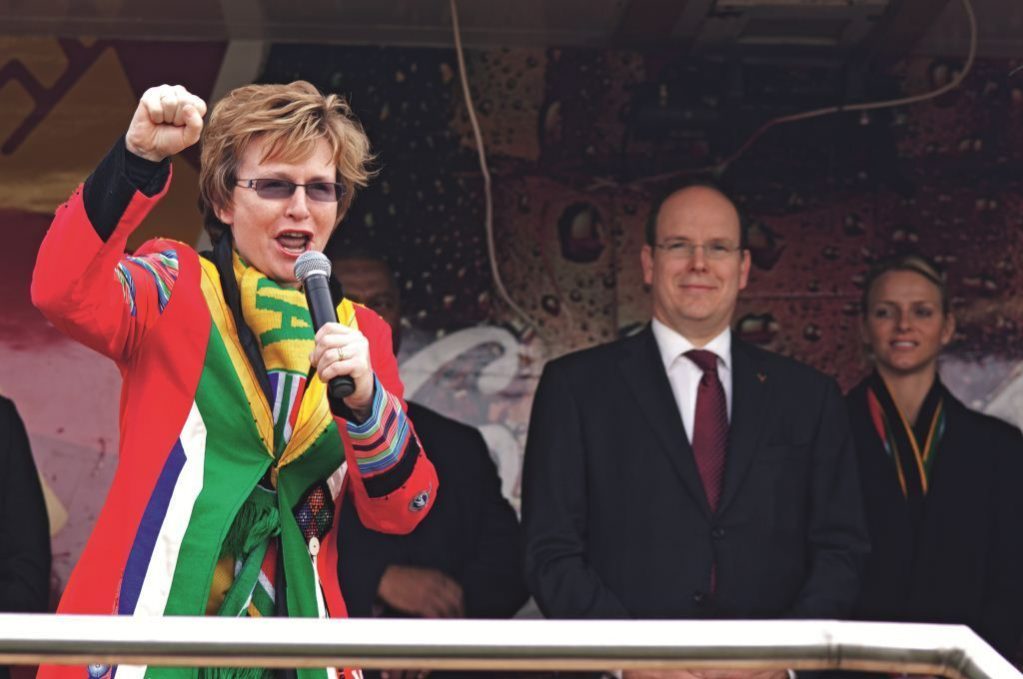Politics is a dirty game, but when gender becomes part of the mudslinging, there is a dangerous detraction that muddies political waters, especially at a time when South Africa should be building on its 20 years of democracy.
While women’s participation in politics in South Africa may rank among the highest in the world, there is disparity between the way female politicians are treated in relation to their male counterparts. Politics allows an attitude of permissiveness, where sexist insults and criticism are par for the course in the cutthroat, survival-of-the-fittest political game. It is almost as if so long as you decry rape and violence against women, most other gender-based barbs, quips and caricaturizations sneak by the green light.
Recent media articles, debates and Twitter trends have trained a sharp spotlight on how 20 years into democracy, gender issues continue to be entwined with issues of race, class, lingering social division and double standards. It is this complexity that is at the heart of the matter.
FORBES WOMAN AFRICA spoke to three prominent South African politicians about how much of the glass ceiling they have smashed. While the positions they hold shape critical agendas, female politicians are routinely name-called, even by each other.
Why does the African National Congress Women’s League (ANCWL) not believe it can put forward a female presidential candidate and why does Twitter trend because of an MP’s dress?
Loading...
Helen Zille
Democratic Alliance (DA)
As head of the opposition, Zille is no stranger to dishing out criticism or taking it. She believes strong women leaders – the DA’s top three are women – are comfortable and confident to lead.
What concerns the Western Cape Premier, though, is that the hostile arena of politics dissuades other women from entering the fray. “I fear many women feel inhibited from assuming leadership roles because of the abuse and invective they face in the public square,” she says. And the invective that circulates is not for the faint-hearted. Former African National Congress Youth League (ANCYL) leaders Julius Malema and Floyd Shivambu have openly passed comments about her, which Malema has later defended as part of “public debate”.
“Persons guilty of sexist behavior should be named and shamed. There is no place for such behavior in our society. But, we need to address the underlying causes of sexism, which begins in the family and in communities,” she says.
Zille came under fire earlier this year following a public spat with DA Youth leader Mbali Ntuli, who criticized the DA’s march on the ANC headquarters during a jobs march. Zille called Ntuli a “princess” and “prima donna”, but she says: “I was describing indulgent and petulant behavior. My response would have been equally robust if it was directed at a man.”
Zille cautions that gender issues can become media fodder and headline grabbers. It can take away the focus that recognizes the strides women have made.
Mamphela Ramphele
Agang

Mamphela Ramphele’s entry into the political arena as leader of Agang last year was bound to see daggers drawn. She was not surprised, but is disappointed at how a woman in power still unsettles many men.
“The more women succeed, the more many insecure men feel threatened. Women remain ‘out of place’ as leaders in male-dominated societies and it is not in politics alone,” she says.
It was Ramphele’s peck on the lips with the DA’s Zille, in their short-lived political partnership earlier this year that took on all kinds of sexualized caricaturization. It shifted from jokes and the material of satirists to become crass, cringe-worthy and below the belt – all with sexist overtones. She puts it down to media’s inability to move forward or to look at the deeper context surrounding issues of sexism in society. For Ramphele, it means the debate must move forward and beyond gender as seen in isolation from other issues that threaten freedom. It is the role of media, business, those in education and female leaders to use their power more definitively. She insists South Africa is ready for a black female president, however, she is under no illusion that women in many sectors of society remain second-class citizens.
“For millions of our daughters, the notion of gender equality remains a distant dream in the daily battle just to stay alive. How can they see themselves as leaders? Yet women lead families and communities, providing the strength and stability (emotional, financial) for many. We need to find ways to empower women to lead in their communities and beyond,” says Ramphele.
Thandile Sunduza
African National Congress (ANC)

“Maybe if I wasn’t pregnant I would have just been able to make a joke about the tweets, but why is it not okay for big women to show off that they are pregnant. Why is big not a brand or sexy? We have many big African women in Parliament, but we play the culture card when it’s convenient for us,”
says Sunduza.
She says it was hurtful that it was mostly women, and black women in particular, who led the Twitter taunts.
“We have a pull-her-down mentality that shows we are still not liberated. When women don’t stand up for each other, we elevate the patriarchy that still exists in Africa.”
She takes a swipe at journalists who tweet before they think, egging each other on.
The damage was done in minutes.
“Of course we have freedom of expression in this country, but people need to think about other people’s dignity and rights,” she says.
Sunduza says a growing culture of mockery as acceptable behavior, be it gender-based or otherwise, is worrying.
“How many people were interested in the President’s State of the Nation speech, and how many more people were interested in my dress? What does it teach our young people? That’s sad [to] me,” she says.
Loading...
